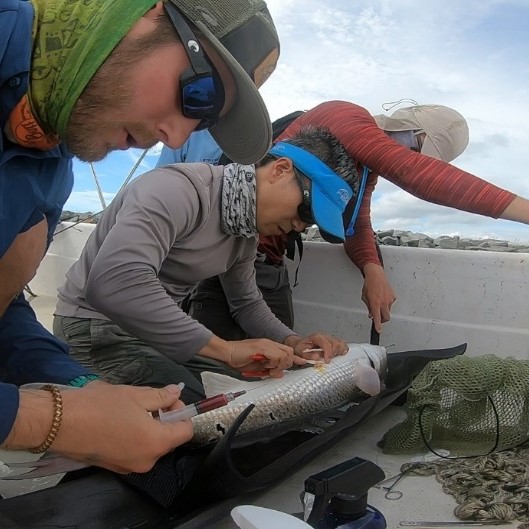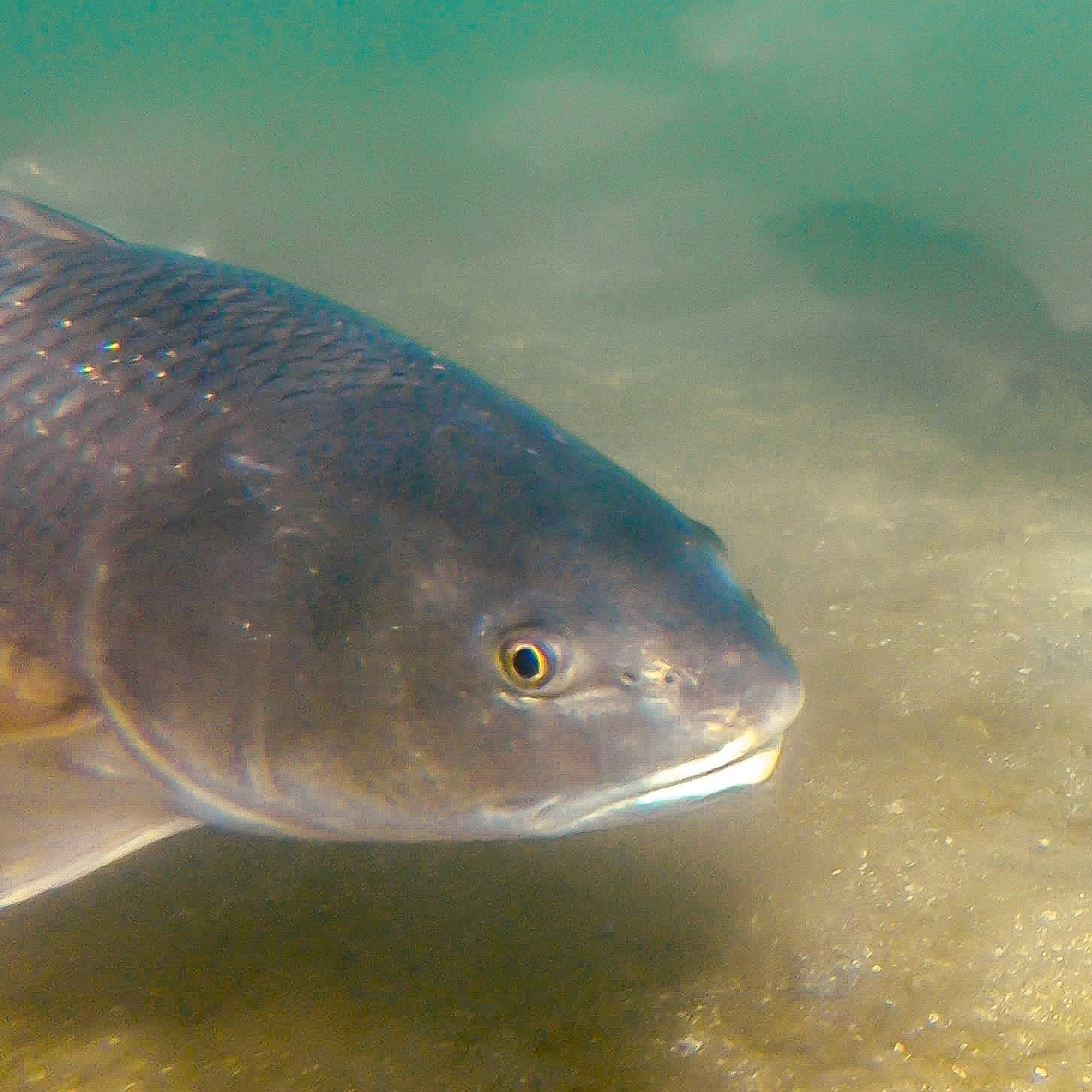 The Whitney Laboratory for Marine Bioscience
The Whitney Laboratory for Marine Bioscience


The movement of individual animals determines the success of their population. From finding food to optimal habitats for spawning, when and where animals move ultimately determines the survival of the species. Using animal-borne tags and remote sensing technology, the Liao Lab is tracking the movements of red drum (Sciaenops ocellatus) to better understand their migration and habitat utilization patterns. Despite their economic and ecological importance to Florida, relatively little is known about this species. These data are needed to identify and protect critical spawning and nursery areas that are the cornerstone of healthy fisheries, and is part of the Whitney Laboratory’s long-term goals for marine conservation.
Acoustic telemetry uses small electronic transmitters (acoustic tags) and receivers to communicate underwater via sound. Implanted tags relay when a fish swims within range of an acoustic receiver (~400 meters). The receiver saves a uniquely coded time stamp that is downloaded later for analysis. We currently have 16 receivers deployed in St. Augustine waters, stretching about 30 miles from the Guana Tolomato Matanzas National Estuarine Research Reserve to the Fort Matanzas National Monument.

We are part of the F.A.C.T. network, a collaborative group of over two dozen marine research organizations interested in resolving the migration strategies of fishes and other marine life in the US South Atlantic. With over 1,500 receivers deployed, this network greatly expands our study range beyond Northeast Florida. Other institutions also have access to our St. Augustine receivers to monitor the long-range movement of their animals.
This long-term program could not be possible without financial support from Patagonia and private foundations, as well as support from the Coastal Conservation Association of Florida, the Florida Fish and Wildlife Conservation Commission, the Georgia Department of Natural Resources, and the local guides and anglers passionate about conserving our marine resources in Florida. Our plans are to expand our research to other ecologically and economically important fishes so we can play a proactive role in the conservation of our future marine resources.
We are now accepting donations to continue this important initiative of real-time tracking of marine animals for conservation. For more information contact Dr. James Liao at jliao@whitney.ufl.edu.